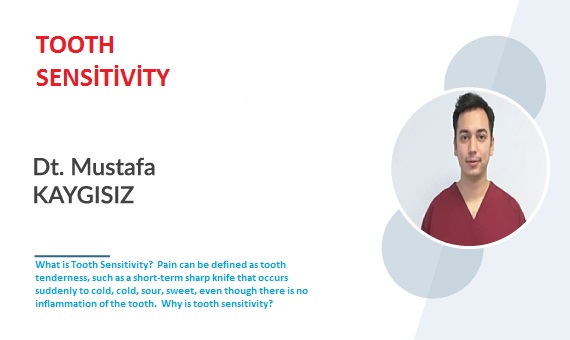Tooth Sensitivity
What is Tooth Sensitivity? Pain can be defined as tooth tenderness, such as a short-term sharp knife that occurs suddenly to cold, cold, sour, sweet, even though there is no inflammation of the tooth. Why is tooth sensitivity? Sensitivity is mainly caused by the destruction of the enamel, which is the outer layer of the tooth, for any reason, or by removing the gingiva from the root surfaces. Grinding of the enamel is caused by incorrect tooth brushing, day / night teeth squeezing / grinding and consuming a lot of acidic foods. Gingival recession is caused by incorrect brushing, dental calculus and plaque presence. Sensitivity After Dental Stone Cleaning? Teeth stones often cause gingival recession. Teeth stones are adhered to the withdrawal zones prior to the toothpaste cleaning and therefore the open tooth surface remains covered. This prevents tooth sensitivity. However, since the tooth surface will be exposed after the tooth stones have been cleaned, a normal sensitivity to a period of two weeks may occur and is temporary. What is Dental Sensitivity Treatment? You should consult your dentist before any dental diagnosis or treatment. At the beginning of the treatment with tooth sensitivity is the changing of the habit of eating. In this regard, acidic foods should be limited to brushing with the appropriate technique. Treatment progresses step by step, firstly, antiperspirant pastes should be used, and if necessary, the physician may apply anti-sensitivity gel and varnish. Generally, these therapies result in loss of sensitivity complaints. If not lost, laser application, filling, surgical gingival operations, canal treatment are not preferred. One of the most important issues leading to success in the treatment of sensitivity is the cooperation of physician patients.





